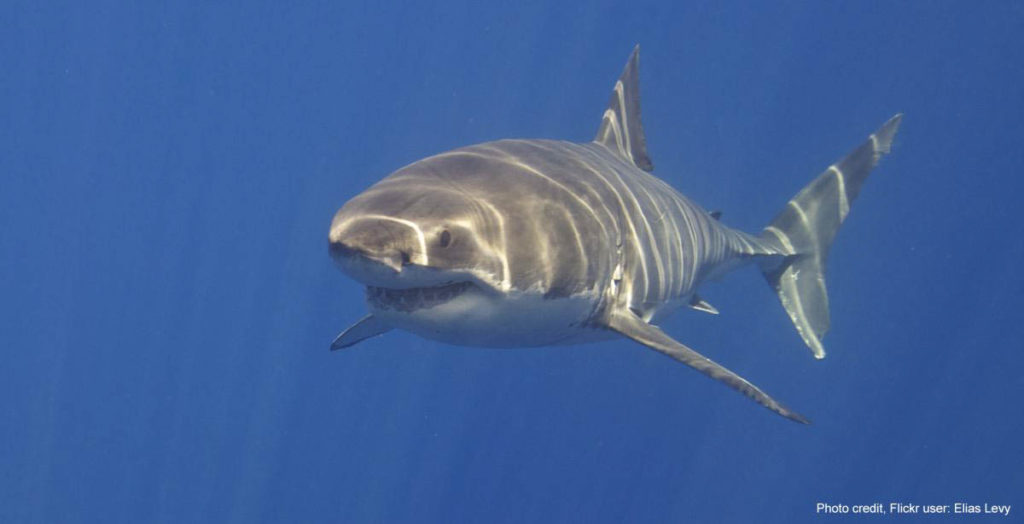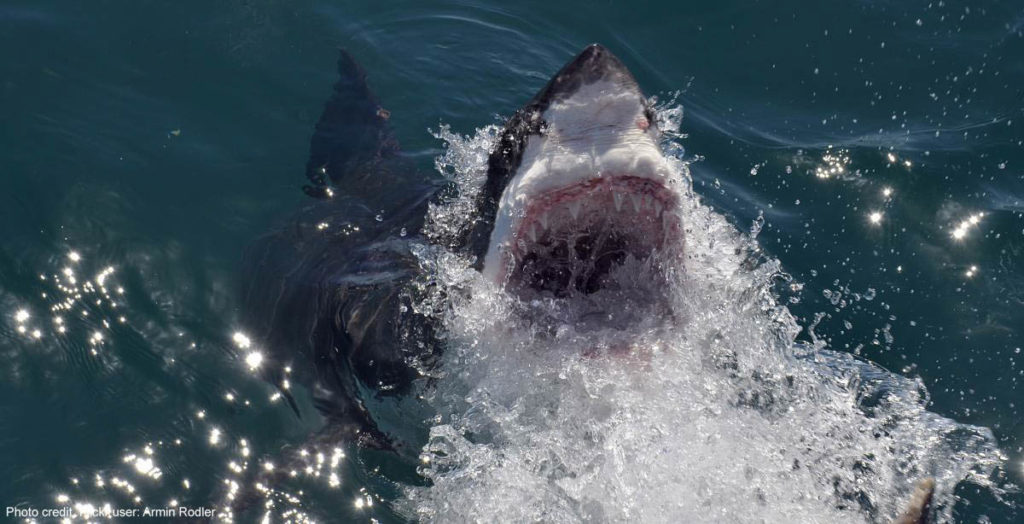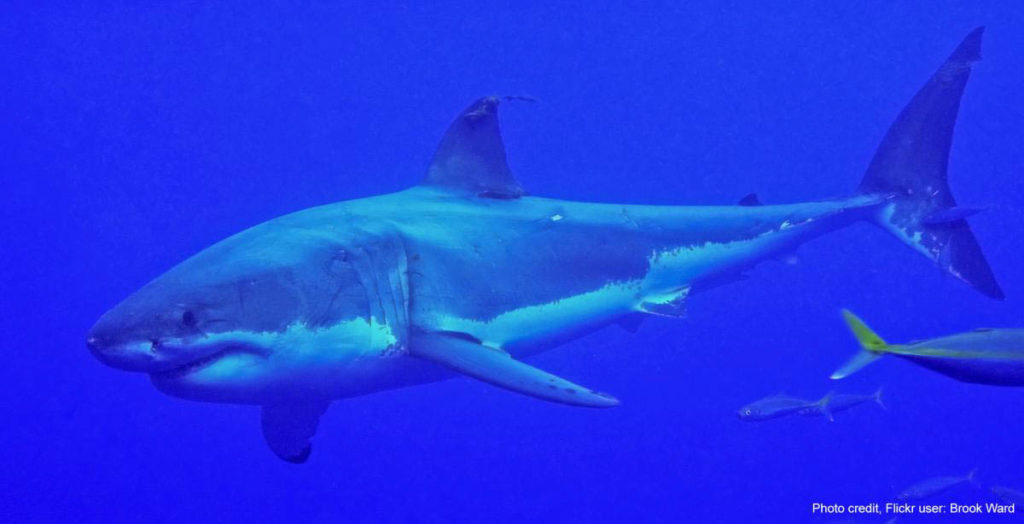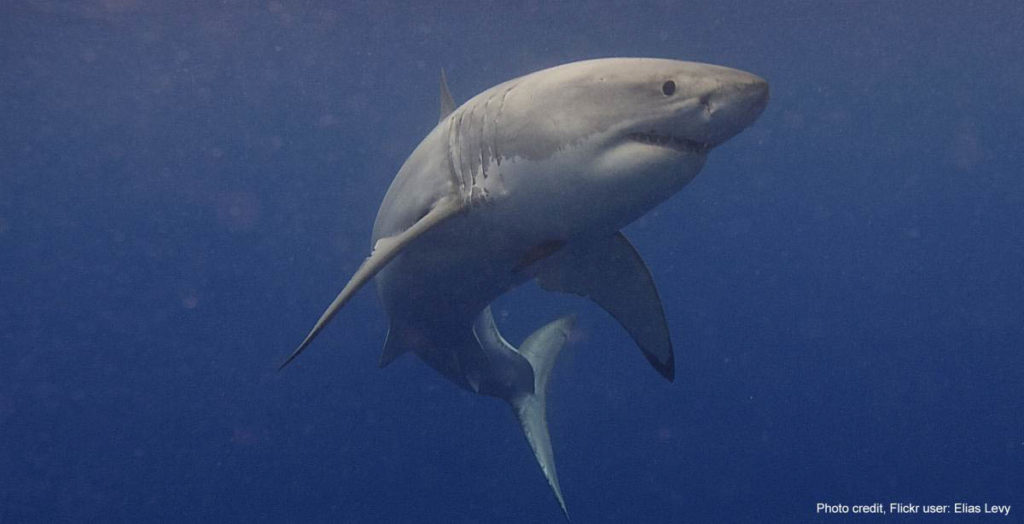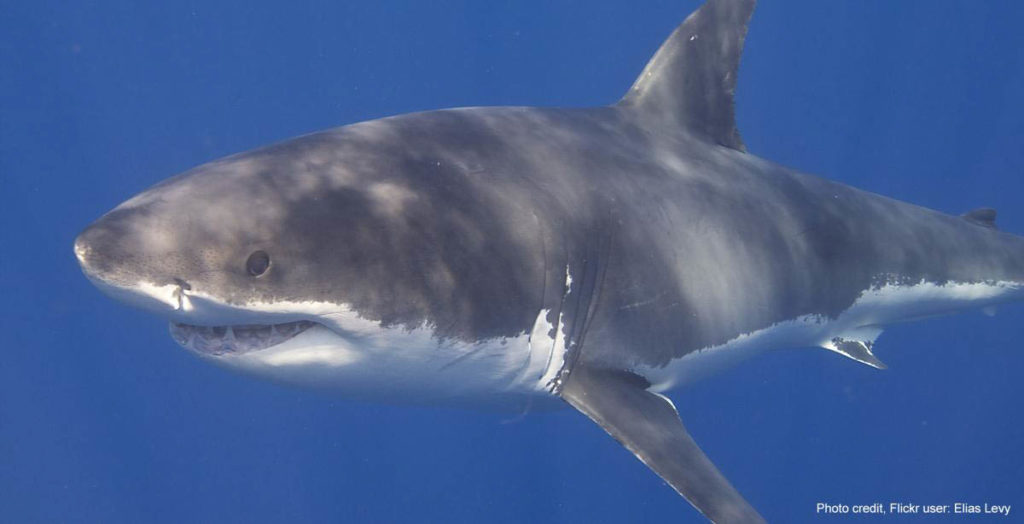Earlier this summer a great white shark sighting was reported off the Atlantic coast of Canada. Although these sightings are rare, white sharks do visit Canadian waters, in fact their range extends from sub-arctic to tropical waters. To help boost your shark smarts, we’re counting down five facts about white sharks.
1. The largest confirmed white shark caught in Canada was more than five metres long. It was caught off the coast of PEI in 1983.
2. White shark populations are dangerously low around the world, which is why COSEWIC listed them as an endangered species in Canada.
3. White sharks aren’t the largest fish in Canadian waters; basking sharks are.
4. White sharks are migratory and have wide ranges. The population that is occasionally spotted off the east coast of Canada likely belongs to a widespread North Atlantic population.
5. White shark sighting from Pacific Canada are also rare. Confirmed sightings are mostly based around the Queen Charlotte Islands (Haida Gwaii).



